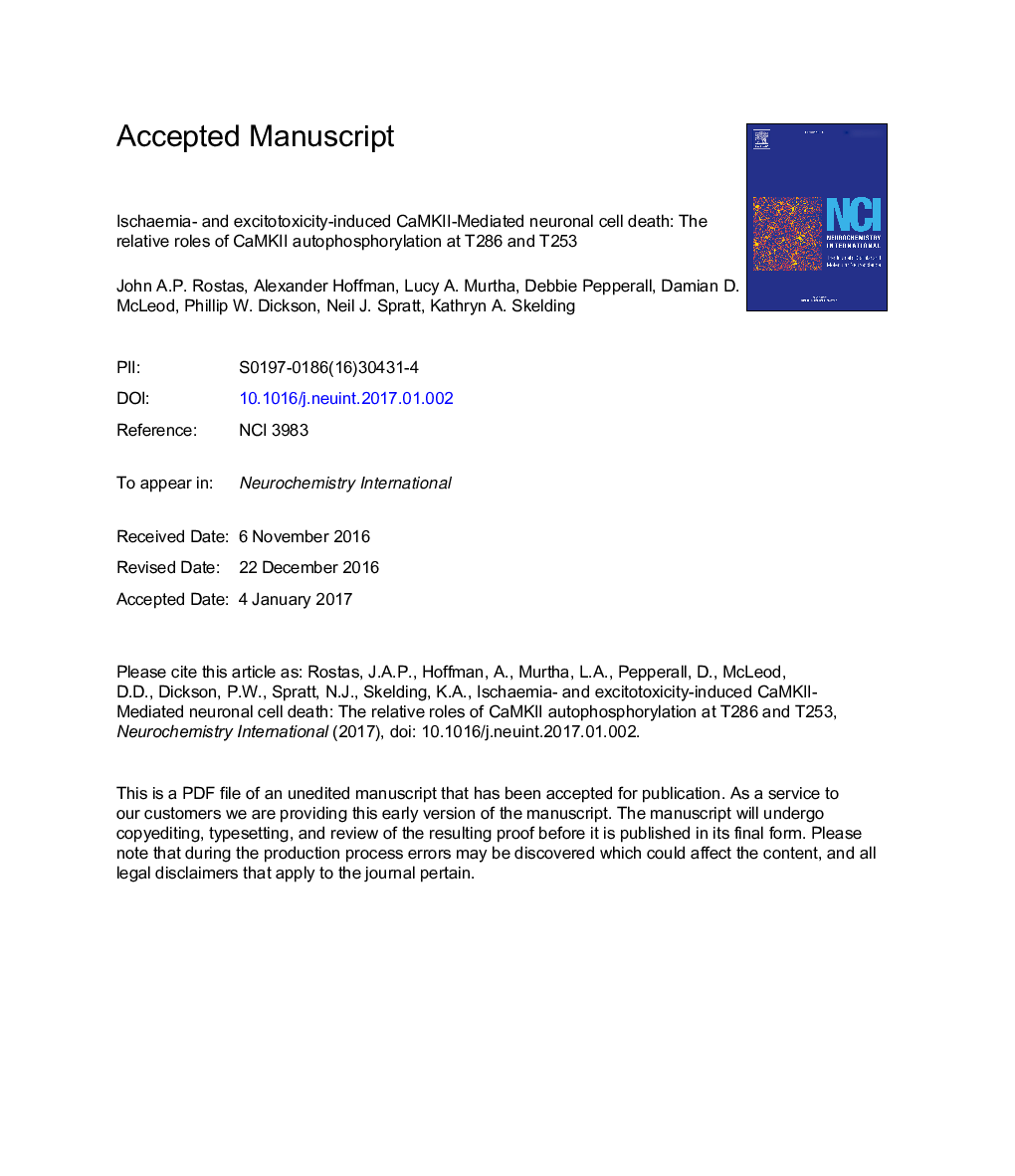| Article ID | Journal | Published Year | Pages | File Type |
|---|---|---|---|---|
| 5534653 | Neurochemistry International | 2017 | 13 Pages |
Abstract
Ischaemia/excitotoxicity produces persistent activation of CaMKII (Ca2+-calmodulin stimulated protein kinase II) that initiates cell death. This study investigated the involvement of CaMKII phosphorylation at T286 and T253 in producing this persistent activation. In T286A-αCaMKII transgenic mice that lack the ability to phosphorylate αCaMKII at T286, transient occlusion of the middle cerebral artery for 90 min resulted in no significant difference in infarct size compared to normal littermate controls. Overexpression of the phospho-mimic mutant T286D-αCaMKII in differentiated neuroblastoma cell lines did not enhance excitotoxicity-induced cell death compared to overexpression of wild type αCaMKII. By contrast, overexpression of the phospho-mimic mutant T253D-αCaMKII significantly enhanced excitotoxicity-induced cell death whereas overexpression of the phospho-null mutant T253V-αCaMKII produced no enhancement. These results indicate that T286 phosphorylation does not play a significant role in ischaemia/excitotoxicity induced CaMKII-mediated cell death and suggest that T253 phosphorylation is required to produce the persistent activation of CaMKII involved in ischaemia/excitotoxicity induced cell death.
Related Topics
Life Sciences
Biochemistry, Genetics and Molecular Biology
Cell Biology
Authors
John A.P. Rostas, Alexander Hoffman, Lucy A. Murtha, Debbie Pepperall, Damian D. McLeod, Phillip W. Dickson, Neil J. Spratt, Kathryn A. Skelding,
